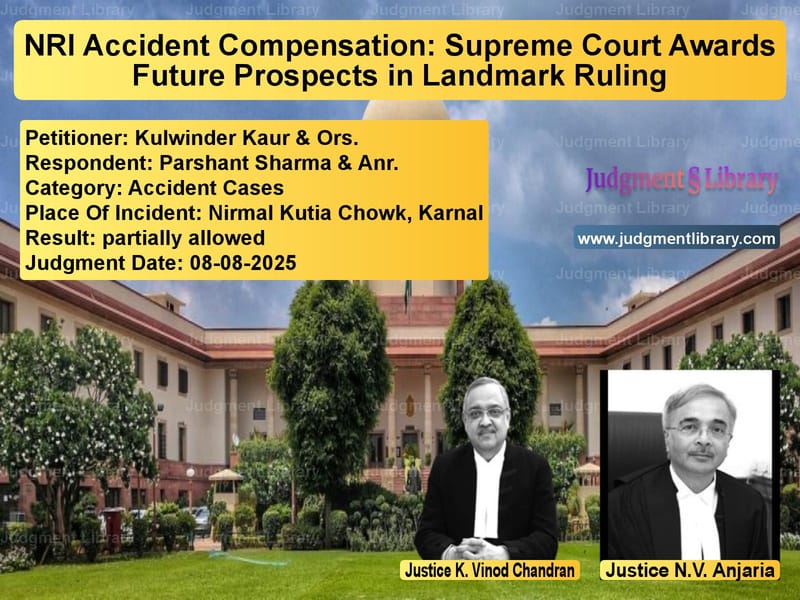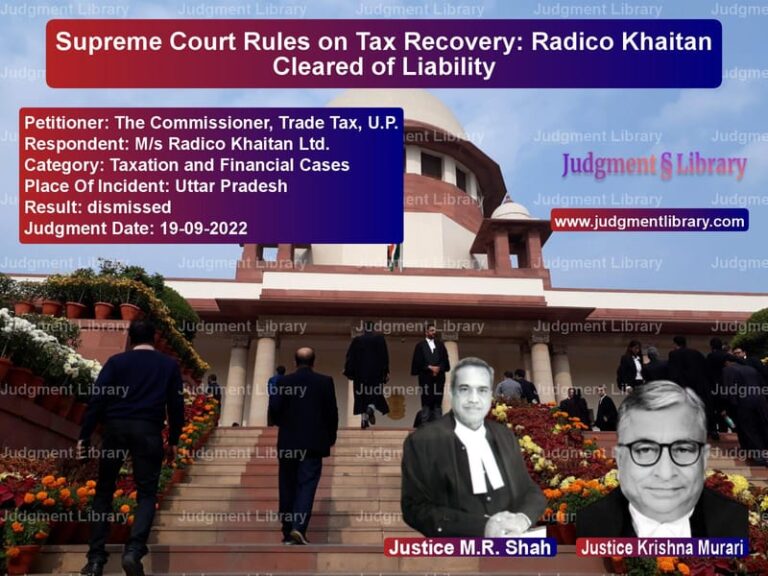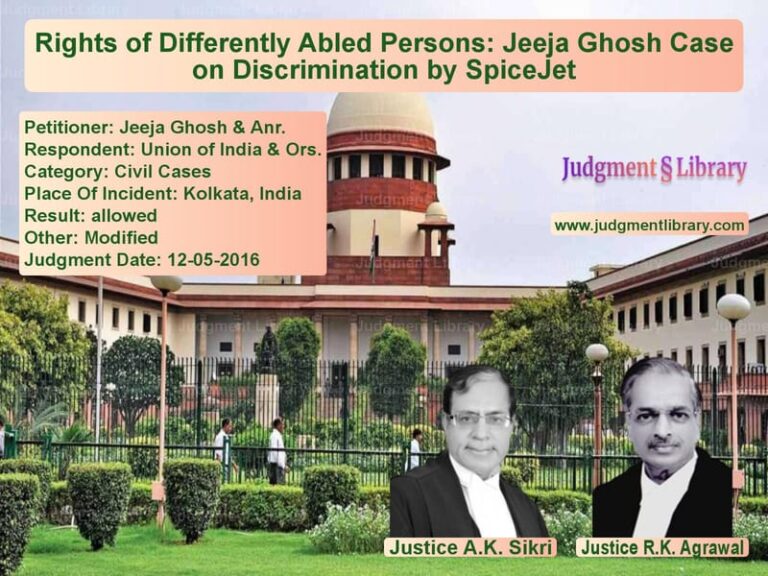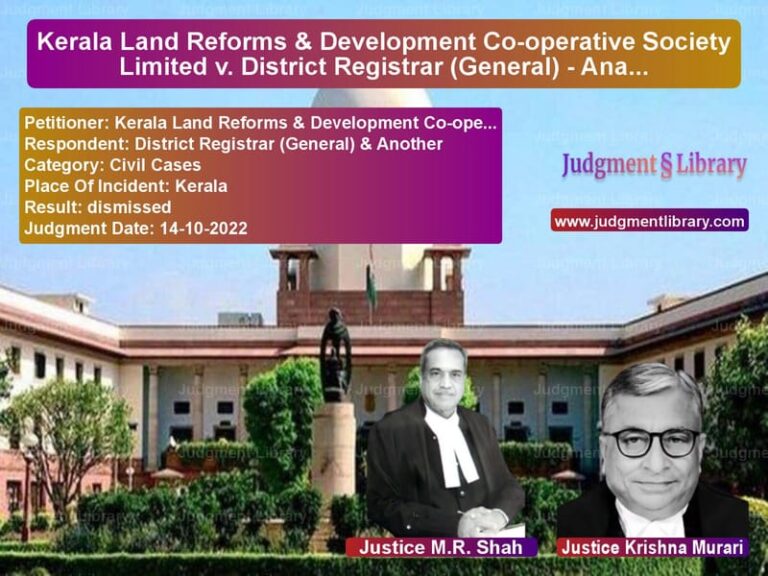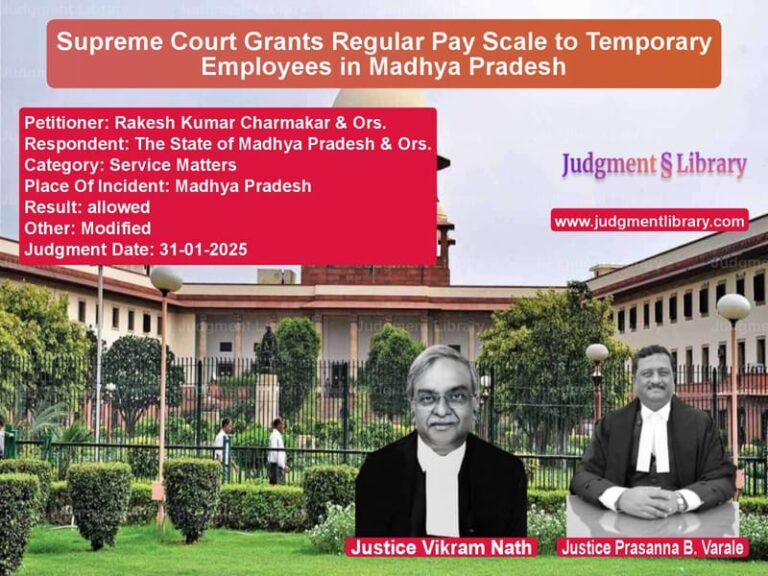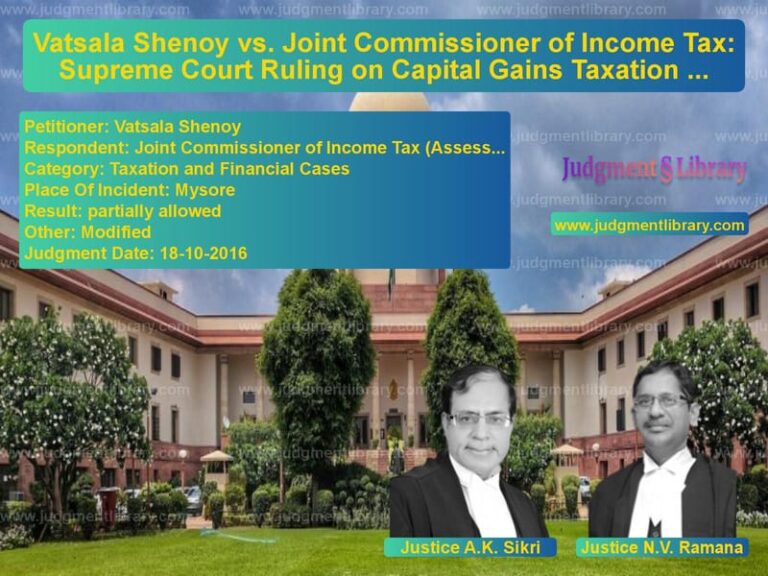NRI Accident Compensation: Supreme Court Awards Future Prospects in Landmark Ruling
The tragic death of a young non-resident Indian in a road accident led to a significant legal battle that reached the Supreme Court of India, resulting in a landmark judgment that clarifies compensation principles for self-employed individuals working abroad. The case involved the family of Rajinder Singh Mihnas, a 31-year-old US national who died in a car accident in Karnal, Haryana, and their quest for adequate compensation that truly reflected his earning potential and future prospects.
On August 31, 2007, at approximately 3:00 AM near Nirmal Kutia Chowk in Karnal, a devastating accident claimed the life of Rajinder Singh Mihnas. He was traveling in a car with relatives from Delhi to Hoshiarpur when a Swaraj Mazda truck, driven rashly and negligently, collided with their vehicle. The impact proved fatal for Mihnas, who was sitting in the front seat, leaving behind his wife, daughter, and son. The family filed a claim petition under Section 166 of the Motor Vehicles Act, seeking compensation for their profound loss.
The central dispute in this case revolved around determining the appropriate compensation amount, particularly regarding Mihnas’s income and future earning potential. The deceased had been working as a driver and operating his own transport company named West End Express Inc. in the United States. According to the claimants, he earned approximately $9,600 monthly, equivalent to about Rs. 4,25,000 in Indian currency at that time. This claim was supported by documentary evidence including his permanent resident card, passport copies, and a salary certificate from his company.
The Motor Accident Claims Tribunal took a conservative approach to assessing the income, determining that the evidence only supported a monthly income of Rs. 5,000. The Tribunal applied a multiplier of 16 based on Mihnas’s age of 31 years and awarded total compensation of Rs. 7,80,000 with interest. This amount included Rs. 10,000 each for funeral expenses, loss of consortium, loss of love and affection, transportation of the dead body, and miscellaneous charges, along with Rs. 1,00,000 for traveling expenses from the US to India.
Dissatisfied with this award, the family appealed to the High Court of Punjab & Haryana. The High Court conducted a more thorough examination of the evidence, particularly focusing on the income tax records bearing the deceased’s social security number and the salary certificate indicating an income of $2,150 per week. The High Court noted that the Tribunal had rejected this document primarily because it lacked the stamp of the Consulate General of India, but found this reasoning insufficient. The Court referred to United States Department of Labor standards indicating minimum wages of $7.25 per hour during 2007, which would translate to approximately $58 per day for an 8-hour workday, amounting to about $1,740 monthly or Rs. 78,300 in Indian currency. Based on this assessment, the High Court significantly enhanced the compensation to Rs. 1,17,20,200.
However, the High Court declined to award any amount for future prospects, relying on a previous decision in Chikkamma v. Parvathama which had denied future prospects for self-employed individuals. This specific aspect became the focal point of the appeal to the Supreme Court. The appellants argued that the Constitution Bench judgment in National Insurance Company v. Pranay Sethi had subsequently established that an addition of 40% of the established income should be made toward future prospects for self-employed persons below 40 years of age.
The respondents attempted to challenge the High Court’s income assessment, arguing that authentication by the Consulate General did not necessarily verify the content of the documents and that the deceased was merely a driver in the company, not the owner. They contended that taking the earnings at $2,150 per week was exaggerated and that the High Court had erred in adopting this higher income figure.
The Supreme Court, comprising Justices K. Vinod Chandran and N.V. Anjaria, delivered a comprehensive judgment addressing these issues. The Court first upheld the High Court’s assessment of income, noting that the High Court had properly appreciated the evidence and that no cross-objections had been filed by the insurance company. The Court then turned to the crucial issue of future prospects, where it provided extensive reasoning based on the Pranay Sethi precedent.
The Court reproduced the seminal passages from Pranay Sethi that form the foundation of modern compensation jurisprudence regarding future prospects. The Constitution Bench in that case had eloquently explained: “Similarly, a person who is self-employed is bound to garner his resources and raise his charges/fees so that he can live with same facilities. To have the perception that he is likely to remain static and his income to remain stagnant is contrary to the fundamental concept of human attitude which always intends to live with dynamism and move and change with the time.”
The judgment further elaborated: “But not to apply the principle of standardisation on the foundation of perceived lack of certainty would tantamount to remaining oblivious to the marrows of ground reality. And, therefore, degree-test is imperative. Unless the degree-test is applied and left to the parties to adduce evidence to establish, it would be unfair and inequitable. The degree-test has to have the inbuilt concept of percentage. Taking into consideration the cumulative factors, namely, passage of time, the changing society, escalation of price, the change in price index, the human attitude to follow a particular pattern of life, etc., an addition of 40% of the established income of the deceased towards future prospects and where the deceased was below 40 years an addition of 25% where the deceased was between the age of 40 to 50 years would be reasonable.”
The Supreme Court acknowledged the unique circumstances of the case, noting that assessing future prospects for a self-employed individual in a foreign country like the United States presented additional challenges due to different socio-economic-political conditions. However, the Court emphasized that the principles established in Pranay Sethi must be followed when determining just compensation for accidents occurring in India, especially when no specific evidence is offered to determine future prospects in the foreign context.
Applying these principles, the Court added 40% to the established monthly income of Rs. 78,300 for future prospects, since the deceased was 31 years old. The Court also revised the amounts awarded under conventional heads according to the parameters set in Pranay Sethi: Rs. 15,000 for loss of estate, Rs. 15,000 for funeral expenses, and Rs. 40,000 for loss of consortium for each of the four dependents (wife, daughter, and parents), totaling Rs. 1,60,000. The Court maintained the multiplier of 16 as correctly applied by the High Court.
After recalculating the compensation with these adjustments, the Supreme Court determined the total compensation payable to be Rs. 1,60,15,280. This represented an additional compensation of Rs. 42,95,080 over what the High Court had awarded. The Court directed the insurance company to deposit this additional amount with 6% interest within four weeks with the Tribunal, after which the claimants could withdraw it following proper verification procedures.
This judgment significantly advances compensation jurisprudence by extending the principle of future prospects to self-employed individuals working abroad, recognizing that earning potential naturally increases over time regardless of geographical location. The Court’s reasoning acknowledges the universal human tendency toward progress and improvement in financial circumstances, refusing to confine compensation calculations to static income assessments. The decision ensures that families who lose their breadwinners in tragic accidents receive compensation that genuinely reflects what the deceased would likely have contributed to their welfare over their working lifetime, thereby providing more meaningful financial security to dependents facing an uncertain future without their primary earner.
Petitioner Name: Kulwinder Kaur & Ors..Respondent Name: Parshant Sharma & Anr..Judgment By: Justice K. Vinod Chandran, Justice N.V. Anjaria.Place Of Incident: Nirmal Kutia Chowk, Karnal.Judgment Date: 08-08-2025.Result: partially allowed.
Don’t miss out on the full details! Download the complete judgment in PDF format below and gain valuable insights instantly!
Download Judgment: kulwinder-kaur-&-ors-vs-parshant-sharma-&-an-supreme-court-of-india-judgment-dated-08-08-2025.pdf
Directly Download Judgment: Directly download this Judgment
See all petitions in Road Accident Cases
See all petitions in Compensation Disputes
See all petitions in Motor Vehicle Act
See all petitions in Negligence Claims
See all petitions in Judgment by K. Vinod Chandran
See all petitions in Judgment by N.V. Anjaria
See all petitions in partially allowed
See all petitions in supreme court of India judgments August 2025
See all petitions in 2025 judgments
See all posts in Accident Cases Category
See all allowed petitions in Accident Cases Category
See all Dismissed petitions in Accident Cases Category
See all partially allowed petitions in Accident Cases Category

